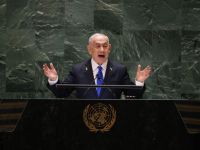Although political issues continue to top Iran's daily agenda, the country's economy is of no less concern. With the country’s economic condition deteriorating, many feel that it is time for Iran's reformist parliament to turn its attention to the economic challenges facing the nation.
Foremost among the parliament’s challenges is the liberalizing of investment laws, which continue to obstruct foreign outlays in the country's non-oil industries. In the lucrative mineral sector, for instance, non-local ownership of assets is limited to 49 percent, and it is still unclear whether foreigners actually own the underground resources. There also remain difficulties over the nature of contracts, taxes, and repatriation of profits.
However, in spite of these obstacles, Iran's vast mineral reserves still attract international interest. Canada's Cominco is currently negotiating with Iran Zinc Mine Development for the rights to excavate the Angouran zinc deposits in northwest Iran. They are hoping to construct a plant that would produce 100,000 tons of refined zinc annually. Earlier this summer, a consortium that included the Swedish-Swiss ABB Engineering Group signed a $74-million contract to build two ferrochrome production plants in the southern provinces of Fars and Kerman.
Foreign investments also flows into the local energy sector. The latest deal involves Italy's Ente Nazionale Idrocarburi (ENI), which last month concluded a $4.3 billion contract to develop the oil fields of South Pars. The fields contain gas reserves estimated at 10 trillion cubic meters — equivalent to 6 percent of the world's total gas reserves. The ENI deal adds further salt to the wounds of American oil companies such as Conoco and Exxon-Mobil, which remain excluded from Iran's energy arena due to unrelenting U.S. government sanctions.
But the latest economic indicators conceal some of Iran's underlying social and monetary strains. While recently released figures indicate that the economy is growing at a respectable 2.4 percent per year, agricultural production has fallen sharply due to severe drought conditions. The famine, now in its second year, is affecting more than half of Iran's over 60 million population into overcrowded cities, where water is already in scant supply.
The Iranian parliamant, both the conservative and reform factions understand the need for economic and social measures to attract foreign investment. But it is feaed that such moves may iprovoke social instability. Still, they may have little choice but to act. Mounting political and financial pressures may, in any case, cause social disquiet to spiral out of control into full-fledged unrest. — (Albawaba-MEBG)
© 2000 Mena Report (www.menareport.com)









